How Mozambicans are picking up the pieces after cyclone Idai
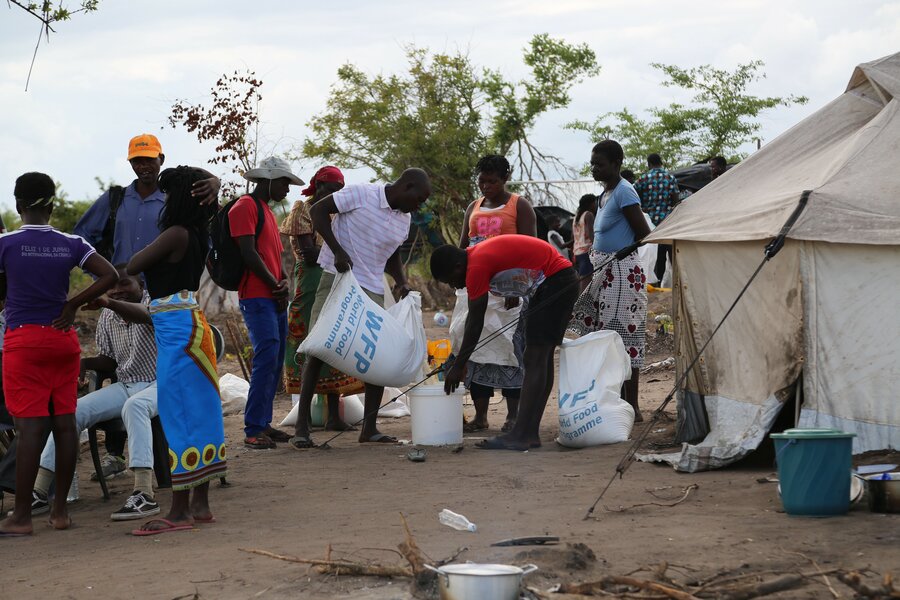
I arrive in Mozambique a month after Cyclone Idai, which struck in March, killing nearly 1,300 people and displacing hundreds of thousands over three weeks — one of the worst tropical cyclones recorded in Africa. A three-hour car trip on a bumpy road takes me from the coastal town of Beira — Mozambique stretches along the southeast of the continent, along the Indian Ocean — to the Guara Guara resettlement area. It is Easter Sunday morning and a group of men are unloading a truck of World Food Programme (WFP) food, storing boxes in a temporary warehouse.
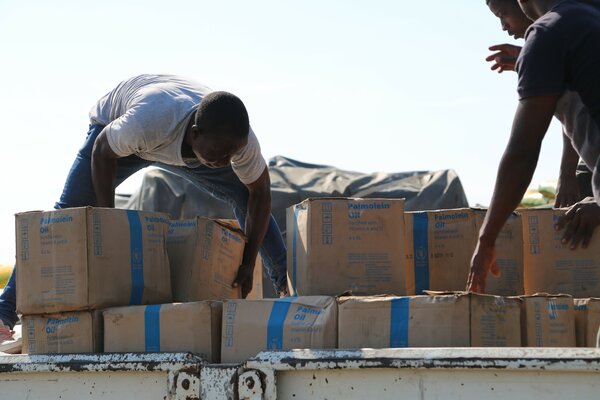
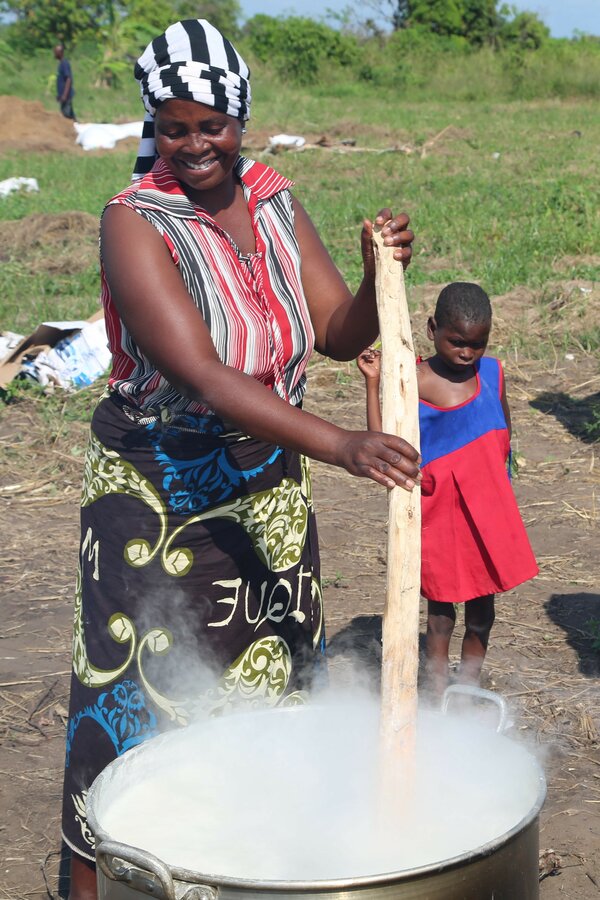
A woman is stirring a steamy pot of papa — sugary cornflour porridge — for breakfast. I stop to watch and get talking to one of the onlookers. Maria João arrived in Guara Guara only yesterday. We walk through the tents and talk.
"I just want to be able to work the land and grow food to raise my family."
A maize and rice farmer, Maria João lost her house, crops and belongings as the floods washed everything away. After staying at an accommodation centre in Beira, she moved to Guara Guara as the government promised people a new plot of land, in a flood-safe area.
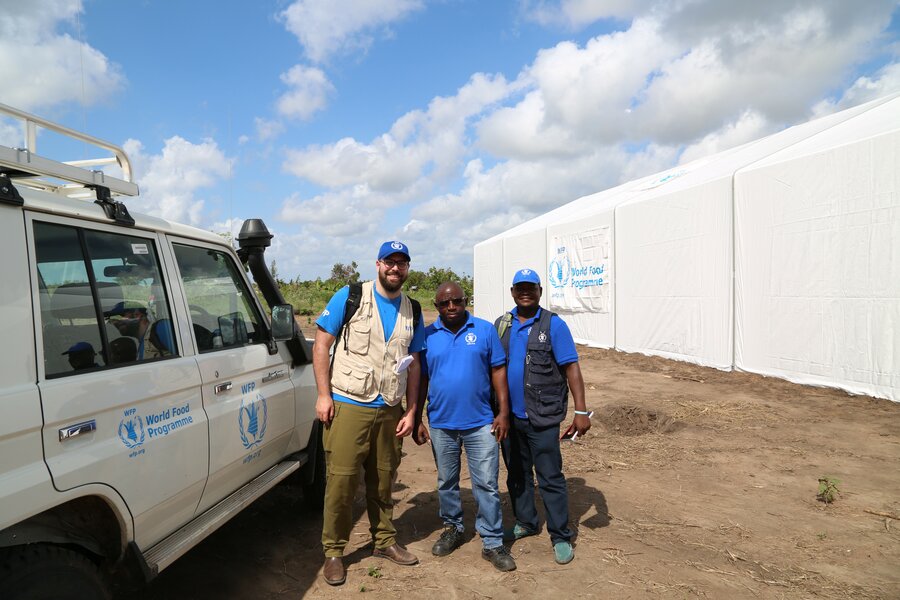
She thinks it will be hard to start a new life from scratch, but she is determined. "I just want to be able to work the land and grow food to raise my family," she says.
As most schools have been turned into shelters, her two children, Benildo and Graça, aged 15 and 11, have not had classes since the cyclone. "But they have notebooks and pencils, so they can practice what they know so they don't forget anything," says Maria João.
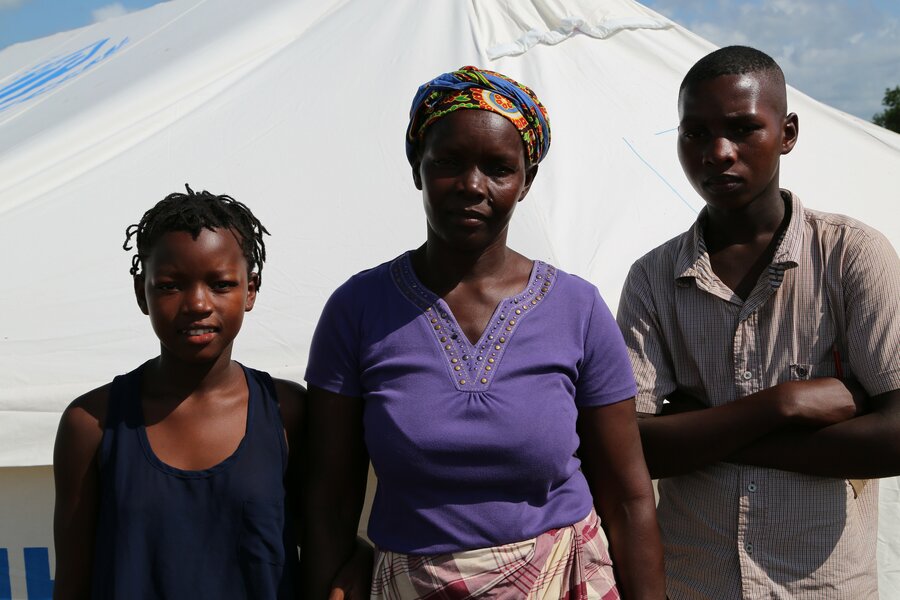
I walk through the settlement — rows of tents set to become proper buildings — onto the land that will be distributed to cyclone victims. There is not much to see. I climb over a few fallen trees and see some wooden stakes coming out from the vegetation, demarcating each plot. In a few days, firefighters will start clearing the vegetation and families will be able to move in.
Vouchers for food
In May, I arrive in the Mutua resettlement area, around 45 km from Beira. Two months on from Idai, people are receiving the last in-kind food assistance. Heads of families are registering for the next stage of support: vouchers to redeem in shops.
People queue outside a big tent, waiting to register for WFP assistance cards. This will allow them to receive a ration of rice, beans and vegetable oil that will last them for 15 days. Next time, they will be given a voucher to buy food of their choice in local shops. As the situation improves and markets start functioning again, using vouchers will help the economic recovery.
The European Civil Protection and Humanitarian Aid Operations (ECHO) is one of the donors supporting WFP in the transition from delivering food to providing vouchers to the victims of Idai.
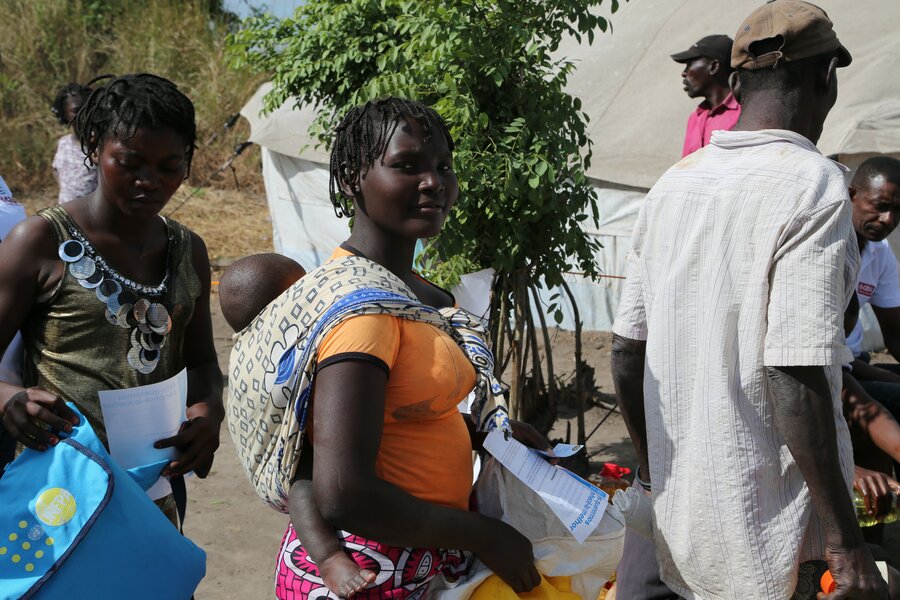
"I left both my children with friends in Beira so they can attend classes until the end of the school year."
A few metres away from the registration and distribution site, a woman sits on the floor selling dried fish she caught in nearby lakes. Maria Joaquim is 31 and has two children. She is the head of one of the 130 families living in Mutua.
Her story is similar to that of many others, except she has been displaced twice: from her home during tropical storm Desmond at the beginning of the year and then, after cyclone Idai, from the temporary camp in Beira to which she had been relocated. Maria is eager to start farming the plot of land she has received but does not have the tools to do so.
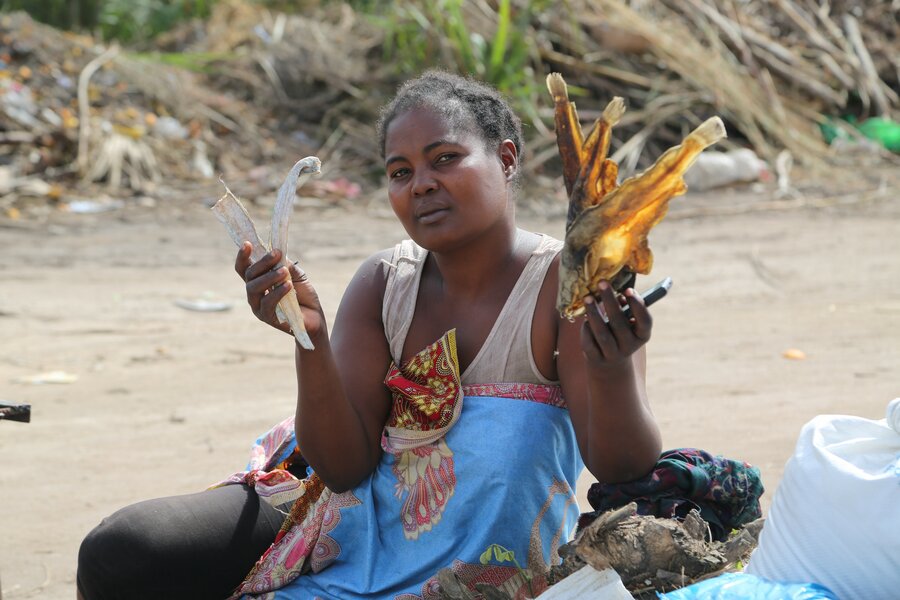
"I left both my children with friends in Beira so they can attend classes until the end of the school year," she says. She hopes that for the next school year her children will be able to live in their new home in Mutua and go to school there — but both home and school are yet to be built.
Building new lives
Walking around the Mandruzi resettlement centre three months after Idai struck, I can start to see how these places can transform into villages: areas are now clearly demarcated; schools, police stations and health centres are being built.
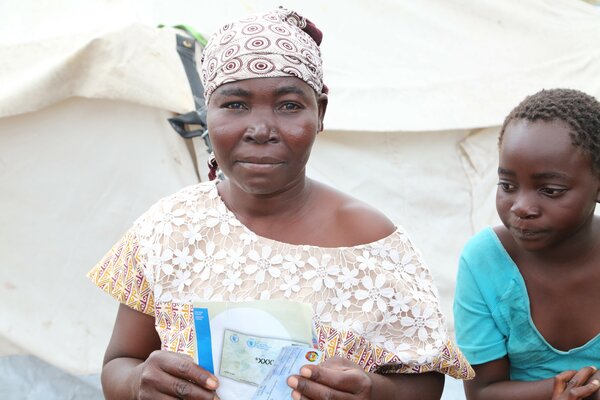
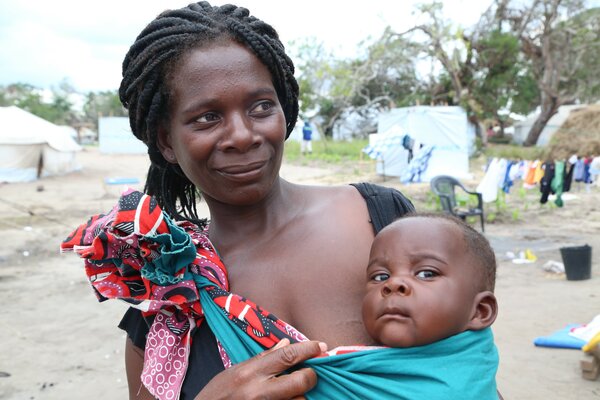
People here have to start all over again: new land to work on, a new house to build in a new neighbourhood, and often new activities to set up. As well as their homes, livelihoods, loved ones and documents, many say they have also lost the sense of who they are.
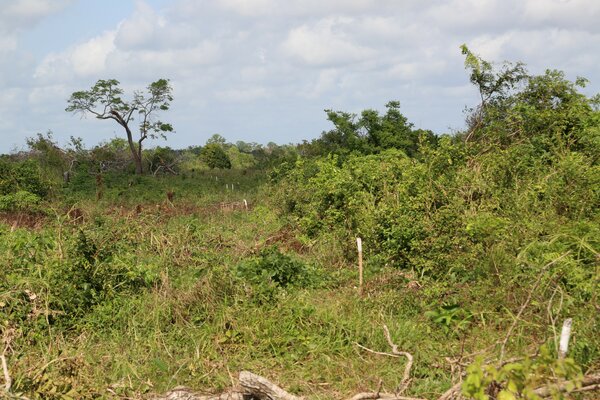
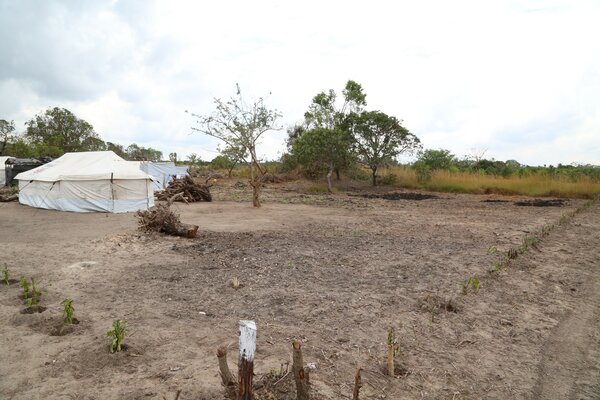
Not Castro Antonio, though. I see him from a distance, sitting in the open with his sewing machine, chatting with two other men. It's easy to guess what he does for a living as he adds the final touches to a child's shirt made of capulana (a traditional Mozambican cotton fabric with printed patterns).
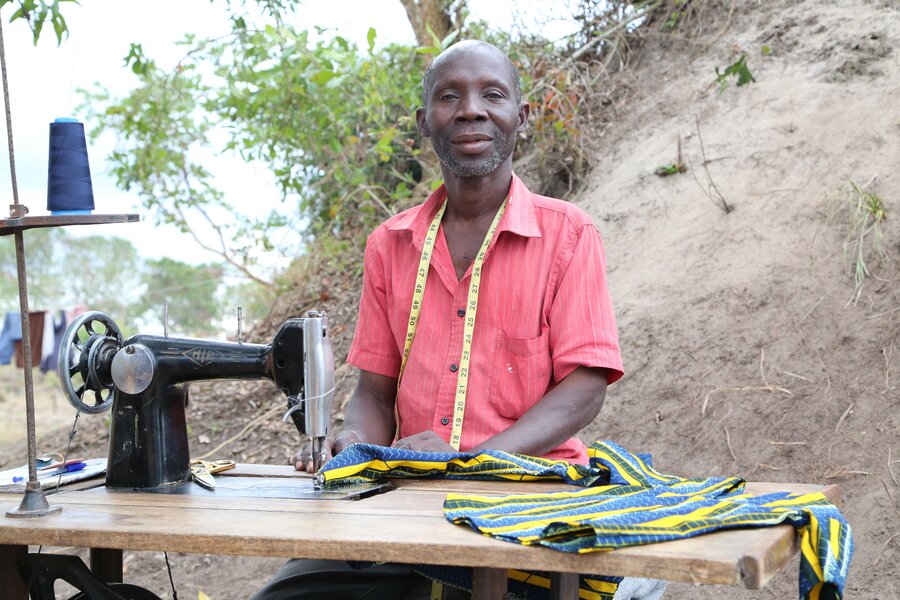
He, too, lost everything he had after Idai. Two weeks ago, however, he managed to get his hands on an old sewing machine from a cousin. He started to work straight away, sewing and selling clothes.
"Business is still slow but word needs to get out that I'm here making clothes."
Thanks to WFP vouchers, he and his family can get the food they need from local shops but he is eager for his business to take off so he can move beyond assistance.
"Business is still slow," he says, "but word needs to get out that I'm here making clothes."
Maria João, Maria Joaquim, Castro Antonio and many others had their lives turned upside down by Cyclone Idai but are now looking at the future with optimism — albeit cautious — as they settle down after the chaos.
In the immediate aftermath of the disaster, WFP went in with ready-to-eat food, switching to in-kind staple foods and later vouchers as the situation evolved. Now that the immediate emergency phase is over, WFP will continue to support affected populations by providing assistance while they build new livelihoods.
WFP is grateful for the support provided by the European Civil Protection and Humanitarian Aid Operations (ECHO), USAID, United Kingdom, UN CERF, German Federal Foreign Office, Canada, China, Ireland, Japan, Qatar, the Kuwait Red Crescent Society, Norway, Monaco, Sweden, Spain, Switzerland, the Russian Federation and private sector partners.
